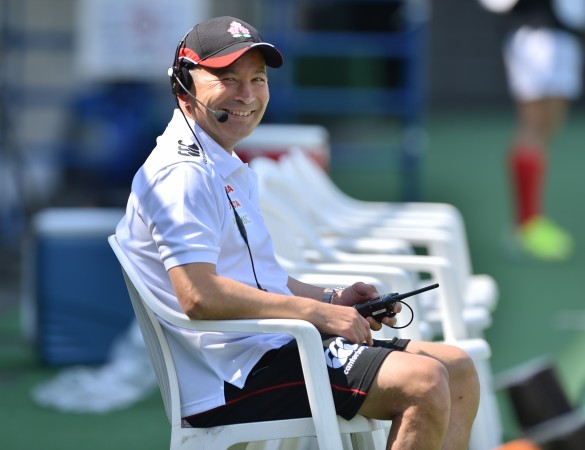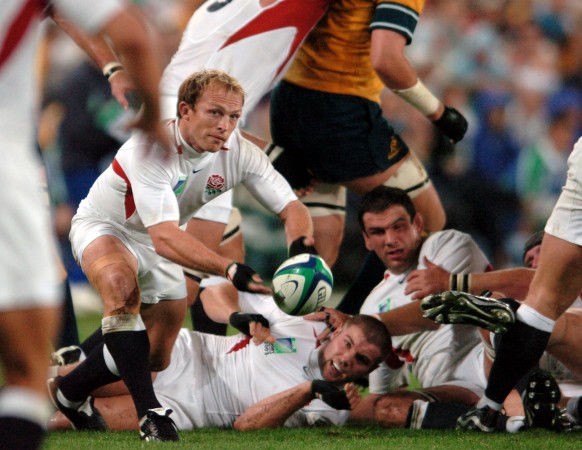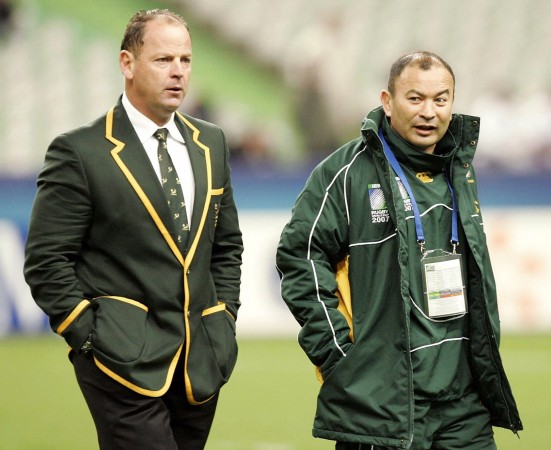Running amok with the Ellas, playing for Leicester, and painting over South Africa's cracks – new England coach Eddie Jones sheds light on his illustrious career
What are we to make of England’s first foreign head coach? Rugby World interviewed the chirpy Australian last year when his sights were set on making an impact with Japan at the recent World Cup – and we all know how well that turned out. Now the RFU are hoping he can work his magic on the England team. Here’s what Eddie Jones had to say on his life in rugby…
I grew up playing rugby with the Ella brothers. We played league at primary school and then our high school started a rugby side. I was a flanker and then a fly-half before ending up as hooker of the first XV in my final year. We didn’t kick, we just ran it.
The big difference back then was in training. In union it was all about the set-piece. In league it was about skill and tackling, and players could put what they learnt in the 13-man game to good use in union. Playing league was one reason why there were so many good players in that era.
Mark Ella is the best player Australia have ever produced. He didn’t just read the game well, he was incredibly tough. He played hooker when we were at school and he developed this attitude that if the opposition had the ball he wanted it. I remember him making six consecutive tackles. He simply wanted to win, to tackle and to have the ball.
I was too small to ever make it as a player. I was only 80kg (12st 8lb) so while I was a good club player, playing more than 150 times for Randwick, I didn’t play that many games for New South Wales.

Under scrutiny: Jones’s belief in traditional No 7s put skipper Chris Robshaw’s place in doubt (Pic: Getty)
I finished my playing career at Leicester. I only played three or four first-grade games alongside the likes of Graham Rowntree and Dean Richards in 1991, but it was a good cultural experience. I remember taking a quick lineout once and having one of the props come up and tell me: “We don’t do that here.”
My interest in working overseas led me to Japan. I coached Randwick’s reserve grade in 1994 while a teacher, a job that included a number of trips to Ho Chi Minh City to set up Vietnam’s first international school. My wife told me that if I wasn’t going to get paid for coaching I should stop. Fortunately, rugby went professional the next year and I went to Japan to do two summer camps with Tokai University and got paid. It was heaven.
My first stint with the Japan national team was in 1996. Glen Ella was the backs coach and head coach Iwao Yamamoto asked him if he knew anyone who could take the forwards. I was then asked to coach Suntory, but with Rod Macqueen leaving the Brumbies I returned to Canberra in 1997 before taking over the Wallabies in 2001.
The 2003 World Cup was amazing. That’s despite the fact we lost the final. Coaching the home side in a World Cup is second to none. You’ve got the whole country supporting you and, while you never like losing, I’m not sure we could have done any better.
To win a World Cup you need five world-class players. England were a really good side and they had at least that. They were also the best-prepared side in the tournament. The only thing we perhaps could and should have done was stop Matt Dawson making those extra yards before the drop-goal.
My one big regret is becoming Reds coach. My heart wasn’t in it. I did it, in 2006, because I wanted to prove I shouldn’t have been fired from the Wallabies job. It was a bad mistake. The team was on the bottom end of a cycle and needed a clean-out.
All I did in 2007 with the Springboks was paint over the cracks. I think the isolation had held them back and they were a little insecure. I look at my time there, when they won the World Cup, as being a house painter and fixing up the bits that needed a little bit of extra attention. I gave them confidence, added subtlety to their attack and taught them how to manipulate attacks.
I jumped at the chance to take over Suntory in 2010. My mother and wife are both Japanese, so I’ve always had an affinity for the country. I always believed they had potential and was alarmed when I returned to see there had been so little development. Japan may never be the world’s top nation but if they can play good rugby consistently they can be at the bottom end of the top tier.
Cricket is the only thing I miss living in Tokyo. There is nothing better than watching a five-day Test. I loved the way Ian Chappell captained Australia, standing at slip with his shirt undone. There was a change in Australian cricketing culture and you could see it in front of your eyes.
I believe Japan can make the quarter-finals of the 2015 World Cup. South Africa will obviously be very difficult to beat but we’ll give it a go. And if we are at our best, there is no reason we cannot beat Scotland, Samoa and the United States.
Having a stroke was a wake-up call. I had to change the way I was operating; I was pushing too hard. It made me realise what I wanted to do – coach and look after my family. I don’t drink now, I eat healthy food, regulate my sleep pattern and don’t have saunas.

Enjoying the ride: Life will sure be interesting for England with Eddie Jones at the helm (Pic: Getty)







